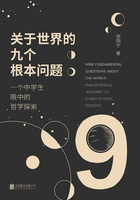
Ⅳ.Alexandria's Construction
The original site of Alexandria has not been excavated, so it is necessary to rely on historical records to evaluate the construction of that great city.
Alexandria was a metropolis in the ancient world with about 300,000 free residents. The city was protected by massive walls. As Siculus notes,“Alexander also laid out the walls so that they were at once exceedingly large and marvelously strong” . The position of the gate allowed Alexander's troops to easily control the access to the city. Moreover, the location of Alexandria ensured a prosperous future. Again, Siculus notes,“Alexander made the city breathe with the etesian winds..., they cool the air of the town, and so he provided its inhabitants with a moderate climate and good health” . Arrian also supports this claim by using a prophecy from Aristander the Telmissian Due to these advantages, Alexandria became a metropolis with a large population. As a result, inclusive of diverse cultures and commerce, the city had abundant resources and became a “nursing mother for men of every nation.” Alexander had a huge expectation of this city. Alexander believed that this city would finally become the greatest city that has ever been constructed on Earth. Although he himself did not successfully witness the completion of Alexandria, his successors successfully fulfilled Alexander's dream.
Moreover, Alexandria was also a cultural center. Although the exact date of construction was not recorded, Euclid, Callimachus,and Eratosthenes mentioned the presence of the Great Library and Museum in Alexandria, and they were places for scholars who were both academic and religious. In fact, the kings made extensive efforts to obtain numerous books for their library, including those written by Sophocles, Aeschylus, and Euripides. The exact number of these scholars remained unknown to historians, but evidence suggested that they were supported by the king. As Strabo notes, in one of the earliest records of the Great Library and Museum, “... this group of men has communal possessions and a priest in charge of the Museum,who used to be appointed by the kings” . These scholars studied philosophy, natural sciences, and various other subjects. Their legacy profoundly influenced the development of Arabic history and science.In conclusion, it is reasonable to suggest that the king constructed the Great Library and Museum and supported a large number of scholars.Alexandria was not only a well-protected metropolis with a prosperous economy but also a cultural center where different cultures blend due to Alexandria's geological position.